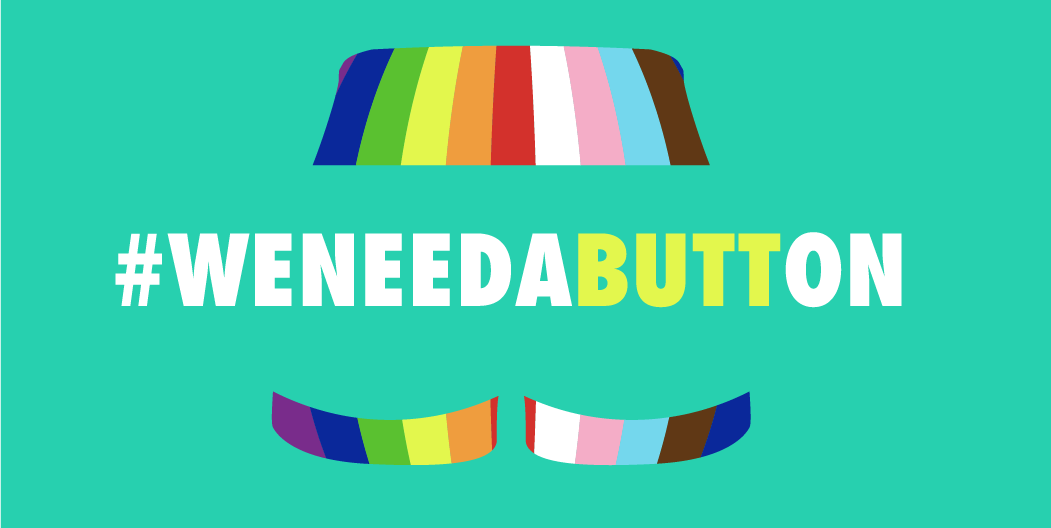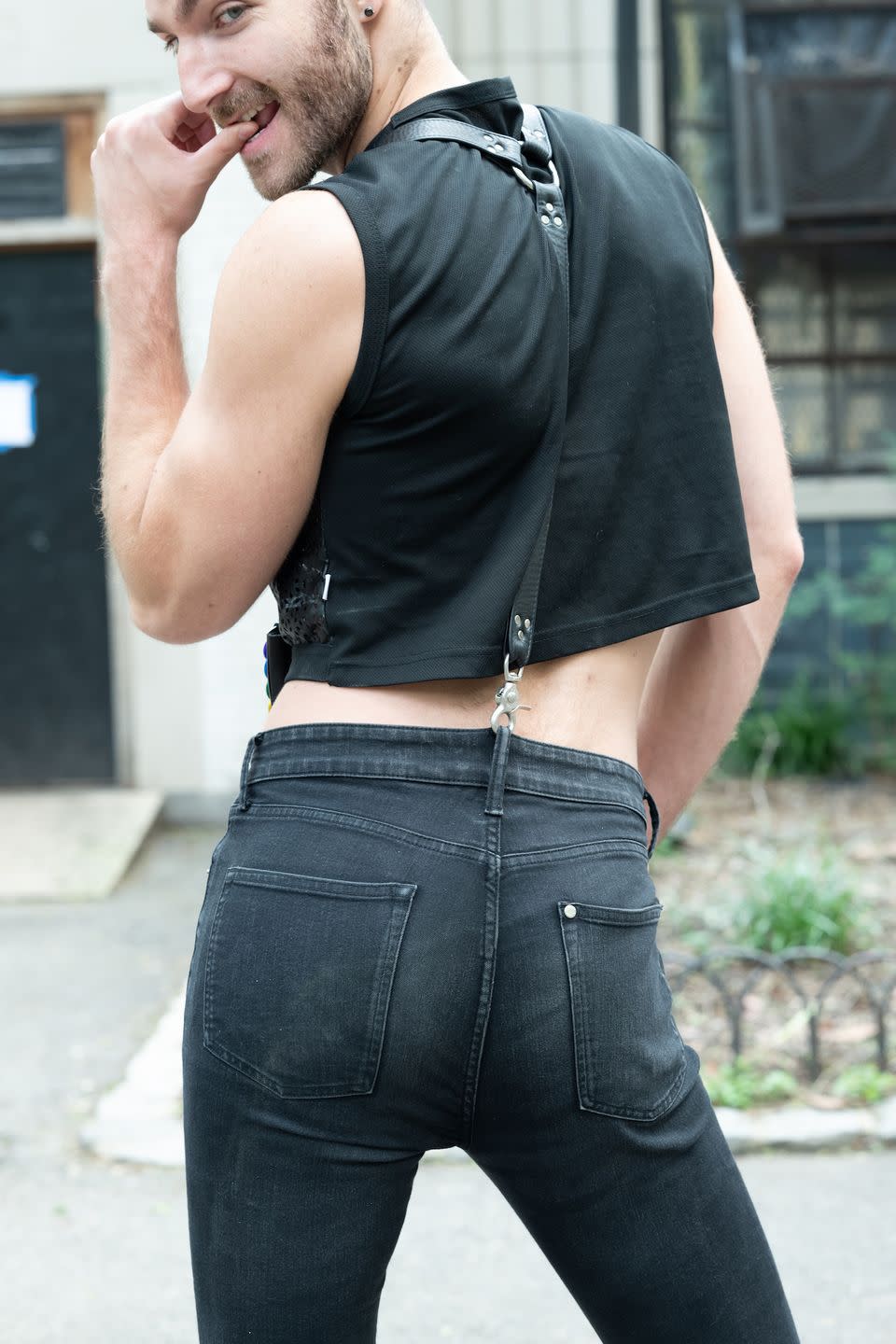New #WeNeedAButton Campaign Helps Queer Folks Get Adequate Healthcare

Why is it so hard to find a good doctor? How come whenever I’m assigned a primary care physician from my new health insurance, I feel like I’m the first patient they’ve ever seen?
Even in 2019, finding a competent doctor who’s organized, knowledgeable, and sensitive to their patients’ needs is like finding a needle in a haystack.
This problem is worse for members of the LGBTQ community. Even fewer doctors are equipped to deal with the specific needs of queer folks. It’s not just a matter of sensitivity training and learning about correct pronouns for transgender and gender nonconforming folks. There are different, physical and medical needs for queer individuals.
For example, gay and bisexual men are 17 times more likely to develop anal cancer that men who only have sex with women. This is due to similar biology between the anus and cervix; just like in the cervix, HPV can mutate normal healthy cells into cancerous ones. So whereas HPV might not be a big deal for straight men, it can be for queer men, especially if acquired anally. In my own experience, I haven’t been to a single doctor (besides my newest primary care physician who’s a gay man) who’s known how provide an anal pap smear to test for cancerous cells.
Similarly, doctors need to know how to provide hormone replacement therapy for trans folks, and how to get a recently diagnosed man with HIV to undetectable levels, so he can live a healthy life. These are just a few of the many ways healthcare differs between straight and queer people.
So, how do you find a doctor who’s adept at treating queer individuals? It’s no easy feat, and for the most part, it’s via word of mouth. Gay friends will let you know about their doctor who’s gay-friendly. But what if you don’t have any gay friends? What if you live in a small, rural town where it’s going to be particularly challenging to find a doctor who’s proficient at dealing with the needs of queer patients? It’s going to be burdensome—and in some cases downright impossible—to find a qualified doctor.
But I’m working towards a solution. I’m the ambassador for a newly launched social media campaign called #WeNeedAButton. The idea behind the campaign is simple: it encourages patient-matching sites like ZocDoc, Yelp, and HealthGrades to include a button, or filter, that lets queer people know that a provider is queer-friendly and up-to-date on medical issues that concern the LGBTQ community.
While a basic solution, the effects of this campaign can impact the lives of thousands. It shouldn’t be a patient’s responsibility to find a well-informed doctor. All doctors should be adept at treating patients no matter their race, sexual orientation, or gender. Sadly, since this clearly isn’t the case, we’re putting the responsibility on patient-matching sites because no matter what, it shouldn’t be a marginalized person’s responsibility to find proper healthcare.
For the campaign, I’m teaming up with DatingPostives.com, a dating site for HIV-positive people and Waxoh.com, a sex-positive digital magazine. DatingPositives also embraces those managing all STIs, and takes their issues very seriously. Given that the LGBTQ community often overlaps with this community, partnering with DatingPositives.com was the perfect match.
But we need your help. Instead of signing a petition, we’re asking everyone who is with us —members of the queer community, HIV-positive community, and allies—to post a "belfie," or butt selfie in solidarity, using the hashtag #WeNeedAButton.

Cheeky, am I right?
If you’re queer and up to it, we’d love if you could also share a little story about a healthcare experience that was not up to par because the doctor didn’t know how to properly care for you as a queer person. The more stories we share, the more others will recognize that this isn’t just a few isolated incidents of LGBTQ folks having a negative experience; it’s the vast majority of us. It’s an epidemic and one that requires attention from patient-matching sites and the greater medical community.
For more on the #WeNeedAButton campaign, visit WaxOh!'s website.
Stay updated on the latest science-backed health, fitness, and nutrition news by signing up for the Prevention.com newsletter here. For added fun, follow us on Instagram.
You Might Also Like

